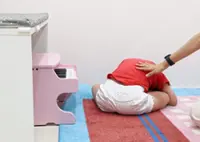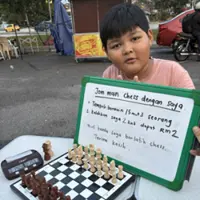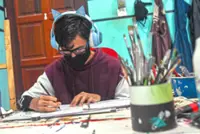Izuddin Isham was cheerful as he attended to customers at his booth at the National Craft Day exhibition, a three-week long event held at the National Craft Complex in Kuala Lumpur recently.
Patiently, he explained how he made his handcrafted ceramic wares such as the traditional labu sayong or gourd-shaped water jars, lampshades and water dispensers.





